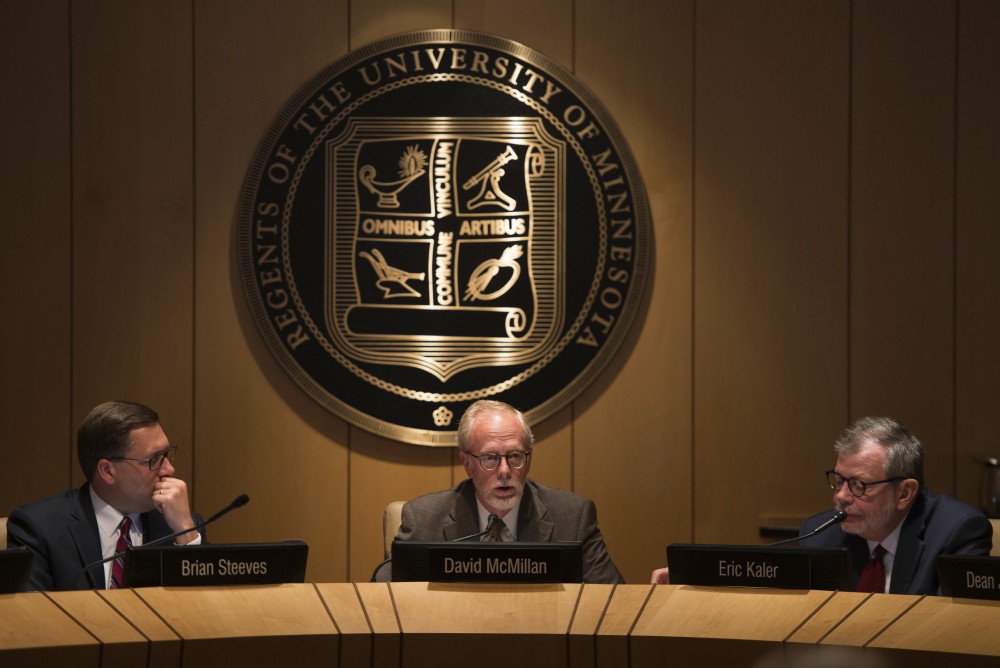A proposed tuition increase of 2.5 percent for resident undergraduates on the University of Minnesota’s Twin Cities campus will be presented to the Board of Regents for a vote later this month.
Outgoing University President Eric Kaler’s recommendations for the tuition hikes, released Friday, June 7, will be presented at the Finance and Operations Committee’s Thursday meeting. The board will take public comment Friday before they vote on June 19.
Kaler’s recommendations also include resident undergraduate tuition increases of 1.5 percent on the University’s other four campuses. Resident tuition at the other campuses also increased by 1.5 percent in 2015-2016. Between 2013 and 2019, undergraduate tuition increased by only 0 or 1 percent.
The proposed increases come after the University received a $43.5 million increase in its biennial budget from the state legislature in May, half of the $87 million it requested. The proposed tuition increases are not designed to offset the less-than-requested funding increase from the state, according to the recommended budget plan.
The tuition increases are below the 3 percent cap on increases the legislature requested, though the legislature has no final say on tuition at the University.
The plan projects that the University will receive more than $14 million in “other revenues” such as gifts, sales and fees and sponsored grants. This estimate is $13 million higher than estimates in last fall’s budget framework.
Kaler’s proposal also asks colleges, system campuses and non-academic units across the University system to cut larger parts of their own budgets in order to identify $5 million for reallocation.
While still the “top priority,” the newest budget also reduces the proposed increase to the general salary pool for employees to 2.25 percent, down from a proposed raise of 2.5-2.75 percent last fall. This is due to an estimated increase in costs of fringe benefits, such as healthcare and retirement plans, and to address other high priority parts of the budget.







